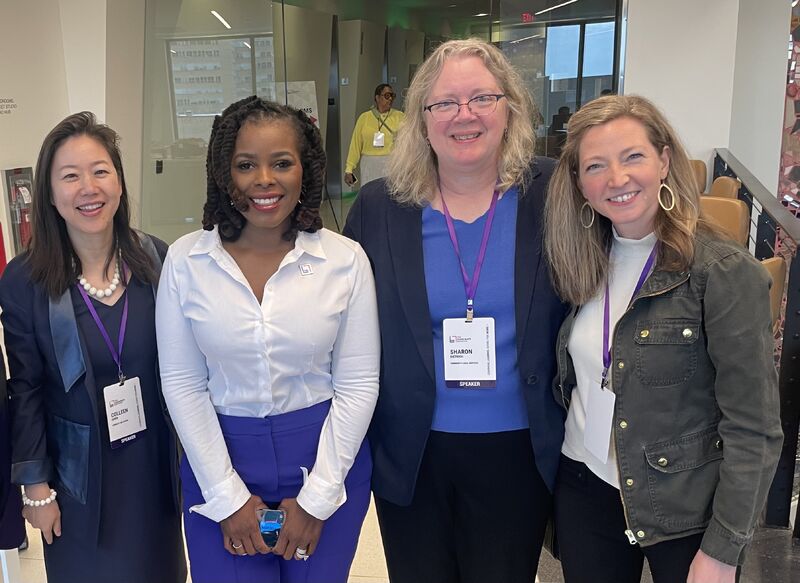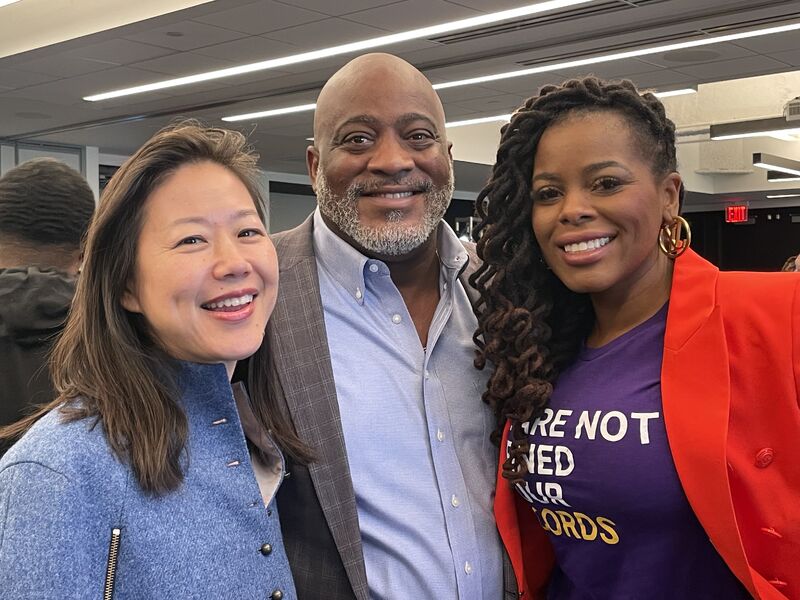By Colleen Chien, Founder of the Paper Prisons Initiative
On June 19, 1865, US soldiers arrived in Galveston, Texas – the last corner of the Confederacy – to announce that the Civil War had ended and that enslaved Americans were now free. In the two years prior, slave owners quietly and strategically delayed the news that the Civil War had ended and continued their exploitation. We celebrate Juneteenth, rather than the Emancipation Proclamation, because what matters is the delivery – not just the pronouncement – of freedom.
Today, millions of Americans who have criminal records, even of just arrests, continue to face diminished economic, civic and other opportunities long beyond their charges have been resolved or sentences have been completed. Though individuals can petition to have their records expunged in theory, garnering substantial economic benefits, research and lived experience has documented that very few can take advantage of doing so in practice, due to the burden and expense. The Paper Prisons Initiative was founded in 2020 following the publication of a Michigan Law Review article of the same name to draw attention to the millions estimated to fall into the “second chance gap” – the difference between eligibility and delivery of relief from the criminal justice system
Since then, supported by the Clean Slate Initiative and others, PPI has applied the the methodology developed in the original article to states in order to calculate the size of the “second chance gap” and estimated earning impact, using the methogolody developed in a second article. The research has been cited widely in statehouses assessing the benefits of using algorithms to automate record clearance and address America’s “paper prisons.” While Pennsylvania has led the way, thanks to the work of legal aid lawyers like Sharon Dietrich, the co-godmother of Clean Slate along with Rebecca Vallas, in total an impressive 12 states have passed legislation.
In California, after voters approved Proposition 64, lawmakers passed a series of bills to automate the expungement process. AB 1793 in 2018 required courts to identify and seal eligible cannabis records. AB 1076 in 2019 expanded automated clearance to eligible arrests and misdemeanor convictions. Thanks to the work of the Alliance for Safety and Justice and others, AB 1706 in 2022 set a deadline for sealing eligible cannabis records, and SB 731, which went into effect in 2024 provides the most expansive version of automated expungement in the country, covering non-serious, non-violent, non-registerable felony convictions after 4 years under some conditions.
Though, as in other jurisdictions, like New Jersey, the California rollout of state-initiated expungements has had its bumps, the impact on clearances has been substantial. In the first six months of implementation of AB1076, over 11 million arrest and conviction records were cleared – the largest expungement in the country’s history. But while these en masse clearances have been rightfully marked by much fanfare, early research by Elsa Chen, Sarah Lageson, and Ericka Adams shows that they have been lacking in reach – few people know that they are now free – at least relatively – of their expunged records.
As a result, like the formerly enslaved individuals who remained subjugated after the Emancipation Proclamation and before they were notified of their freedoms, a large number of Californians are unaware of the grants of records relief they have received under the law. In an age of instantaneous, even invasive digital communication, it’s remarkable, in a bad way, that beneficiaries of transformative laws have not been able to “see it to be it” – to take steps to capture the economic, housing, civic, and dignity gains of a clearer record. (read their stories here)
Juneteenth’s celebration of the actual arrival of emancipation reminds us to focus not just on the idea, but on the mechanisms of automatic expungement. The proclamation of Texas Governor Granger’s General Order No. 3, reinforcing President Lincoln’s Emancipation Proclamation reads:
“The people are informed that in accordance with [the Emancipation] Proclamation [], all slaves are free. This involves an absolute equality of personal rights and rights of property, between former masters and slaves, and the connection heretofore existing between them, becomes that between employer and hired labor.”
As the Clean Slate Initiative continues to lead by turning its attention to implementation, it can borrow some best practices from Juneteenth: clear and unambiguous messaging, delivered by trusted messengers, reinforced by multiple authoritative sources, and the subject of relentless efforts to reach each person who can benefit from the news.
Just as crucially, we must see through a new commitment to ending perpetual punishment through records. In my own experience as an educator and researcher studying this issue for five years, I have witnessed the lives of numerous talented students, mostly students of color, irreparably derailed by old criminal records, barred from the jobs and careers we trained them for and that they earned. Diminished freedoms lead to lost earnings, and the diminished desire to invest and better oneself, with consequences not only for individuals but the families and communities they come from.
This Juneteenth, the Paper Prisons Initiative celebrates freedom in deed, not just in word through a new commitment and line of research to discovering what works in proactive outreach and notification of Clean Slate automated records clearance. We intend to carry out rigorous field experiments to address many open questions in the behavioral science and criminal justice literature: what outreach methods are most effective and most scalable? How do people perceive such information of redemption, and what do they need to start exercising their freedoms and achieve better outcomes? What is the value and scalability of outreach which is shaped and driven by systems-impacted led organizations, in the spirit of brilliant Clean Slate Initiative CEO Dr. Sheena Meade’s adage to: “Be you. Do you. For you.” ? Can richer and more personalized information and navigation help?
We are honored to be collaborating with behavioral scientists at the Duke Center for Advanced Hindsight, the Santa Clara Public Defenders Office, the Berkeley Center for Law and Technology and Berkeley Criminal Law and Justice Center. Drawing upon the expertise of Berkeley’s new College of Computing, Data Science, and Society (CDSS), we are exploring the use of generative artificial intelligence to provide scalable, customized advice regarding how to verify, prove, and characterize one’s clearance, as well as good old-fashioned targeted outreach door-to-door, and hope to find out what sticks. (The proposed national Fresh Start Act, which would create grants for states implementing automatic clearance, would provide even more support for such notification pilots.)
Just as it did over 150 years on Juneteenth, the battle for freedom, from criminal records must shift to encompass not only policy but implementation and outreach. By focusing on delivery, we can make the promise of freedom a reality.

